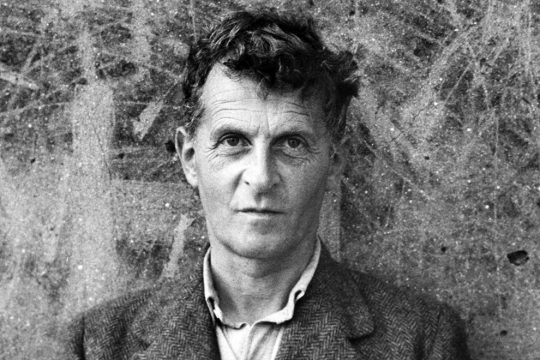
Christopher Hoyt – The imaginary inner inside the cognitive science of religion
No dia 20 de outubro, Christopher Hoyt (Professor Associado de Filosofia e Religião na Western Carolina University) dará um seminário sob o tema “The imaginary inner inside the cognitive science of religion”.
A apresentação de Christopher Hoyt é baseada no capítulo da sua autoria que integrará a coleção “Wittgenstein and the Cognitive Science of Religion” (editada por Robert Vinten) a sair brevemente pela editora Bloomsbury.
Para participar na sessão via Zoom, por favor contacte Robert Vinten através do e-mail rvinten@fcsh.unl.pt para mais detalhes.
Organizado por Robert Vinten, este é o primeiro de uma série de seminários online sobre obras Wittgensteinianas a publicar ou recentemente publicadas, que terá lugar no âmbito das atividades do Lisbon Wittgenstein Group, coordenado por Nuno Venturinha (ArgLab/IFILNOVA).
Scientists working on the cognitive science of religion (CSR) are eager to have us believe that they have recently uncovered the unconscious origins of religious beliefs and practices. Though their theories differ in detail, CSR researchers generally agree that religion is the product of faculties of mind that evolved to serve our adaptive needs, but which sometimes produce the false beliefs and incoherent practices of religious life. Pascal Boyer, a leading figure and a reasonable representative of the mode of thinking that dominates CSR, claims, for example, that religious beliefs are produced by “cognitive misfires” of systems evolved to help us avoid predators, find mates, cooperate and compete with group members, etc. In fact, CSR is undermined by the same conceptual mistakes that Wittgenstein spotted in the psychology of the early twentieth century. Wittgenstein’s insights reveal that Boyer and most of his fellow CSR researchers fail to properly apply the logic of evolutionary theory itself to the language of psychology and so they misunderstand the real nature of their own subject matter and their own theories of mind. The result is a calamitous repetition of mistakes and prejudices made by James G. Frazer in his Golden Bough, an enormous compendium of “primitive” religious beliefs and rituals published in the late nineteenth century. To really understand religious beliefs and practices, we need to correct these mistakes, and, ultimately, we need an entirely different mode of explanation from what Frazer, Boyer and CSR offer.
